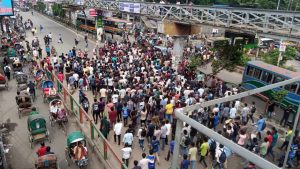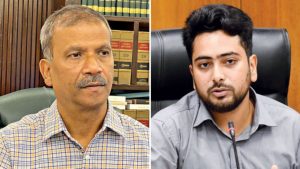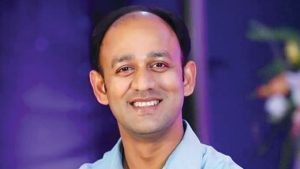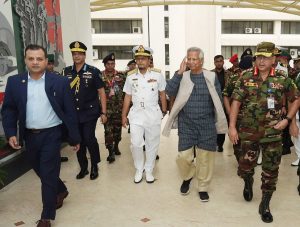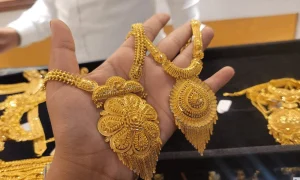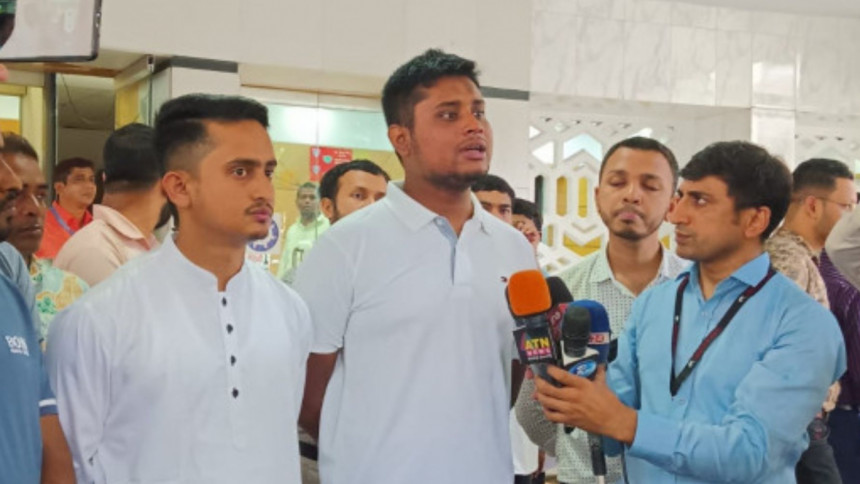

.Forming an alternative political force and ensuring transparency in government work were the two issues that figured most prominently in the district-level views-exchange meetings organised by the Anti-Discrimination Students Movement
Among the other issues discussed were protecting the spirit of the July-August mass-uprising and avoiding divisions between the political parties that were involved in the uprising — all to prevent a potential return of the “fascist forces” — at least three organisers told this newspaper.
Speaking to this newspaper, they said the issue of extortion came up at all the meetings. They were also advised to form an alternative political force with leaders of the movement at the helm.
Sarjis Alam, one of the key coordinators of the movement, said, “We’ve seen power being alternated between two major political parties who ruled the country for so long. Neither has been able to gain the trust of the people. At this moment, people are hoping for a new party to emerge.
“The emergence of a new party is also significant for the existing parties, as it’ll increase pressure [on all] to do well. The people want a party led by young people.”
He added, “We’ve spoken to the local coordinators and those who are from martyrs’ families. We’ve also had discussions with local political leaders. Many leaders and activists, who perpetrated the genocide, are still in the country. They’re involved in various forms of economic irregularities under the shelter of a specific political party. There’s a business going on centring the political cases.”
Speaking to The Daily Star, another central coordinator, Tarikul Islam, who attended the meetings in Rangpur division, said, “Speaking to people in different districts, it seemed they want an alternative force in power.”
Following the district-level discussions, the central coordinators held another meeting with the coordinators and co-coordinators from educational institutions across the country at Dhaka University’s TSC on September 20.
They discussed how the Movement could organise itself better.
Since September 8, representatives of the movement have visited eight divisions of the country in phases. The tour began with a meeting in Munshiganj and ended on September 18 in Shariatpur.
However, meetings in nine districts — Khagrachhari, Comilla, Barguna, Natore, Jhenaidah, Habiganj, Sherpur, Bogura and Chandpur — saw scuffles and commotion among the students.
The meeting in Narsingdi was postponed due to conflicts between two groups of coordinators. In Habiganj and Bogura, meetings were disrupted by a party-affiliated student organisation, while the meeting in Sherpur was disrupted due to conflicts among local coordinators.
Moreover, central coordinators from Dhaka were unable to attend the meeting in Mymensingh in the face of opposition from local coordinators.
EXPANDING ORGANISATIONAL ACTIVITIES
The Anti-Discrimination Students Movement and the Jatiya Nagorik Committee will expand their organisational activities as both the platforms have decided to form district-level “teams”.
Both are likely to announce the committees next week, while the Movement is also mulling overhauling their central coordination team.
At least three Movement coordinators and the convenor of the Jatiya Nagorik Committee have confirmed the developments to The Daily Star.
“The primary reason for forming teams at the district level is to clearly differentiate those engaging in misconduct under the guise of coordinators. If any team member is found involved in misconduct, they can be expelled and appropriate action can be taken to bring them under the law,” Sarjis told The Daily Star.
Meanwhile, representatives of the Jatiya Nagorik Committee, launched on September 13 to consolidate the power of the uprising and work towards national reconstruction, have already met leaders from AB Party, Ganosamhati Andolan, and Gono Odhikar Parishad.
They plan to gradually sit with all political parties, while informal meetings with the BNP, Jamaat-e-Islami, and Islami Andolan Bangladesh have also been planned.
Jatiya Nagorik Committee Convenor Nasiruddin Patwari on Monday told this correspondent that these informal discussions will be held to be acquainted with the party leaders and convey their messages back to the youth.
